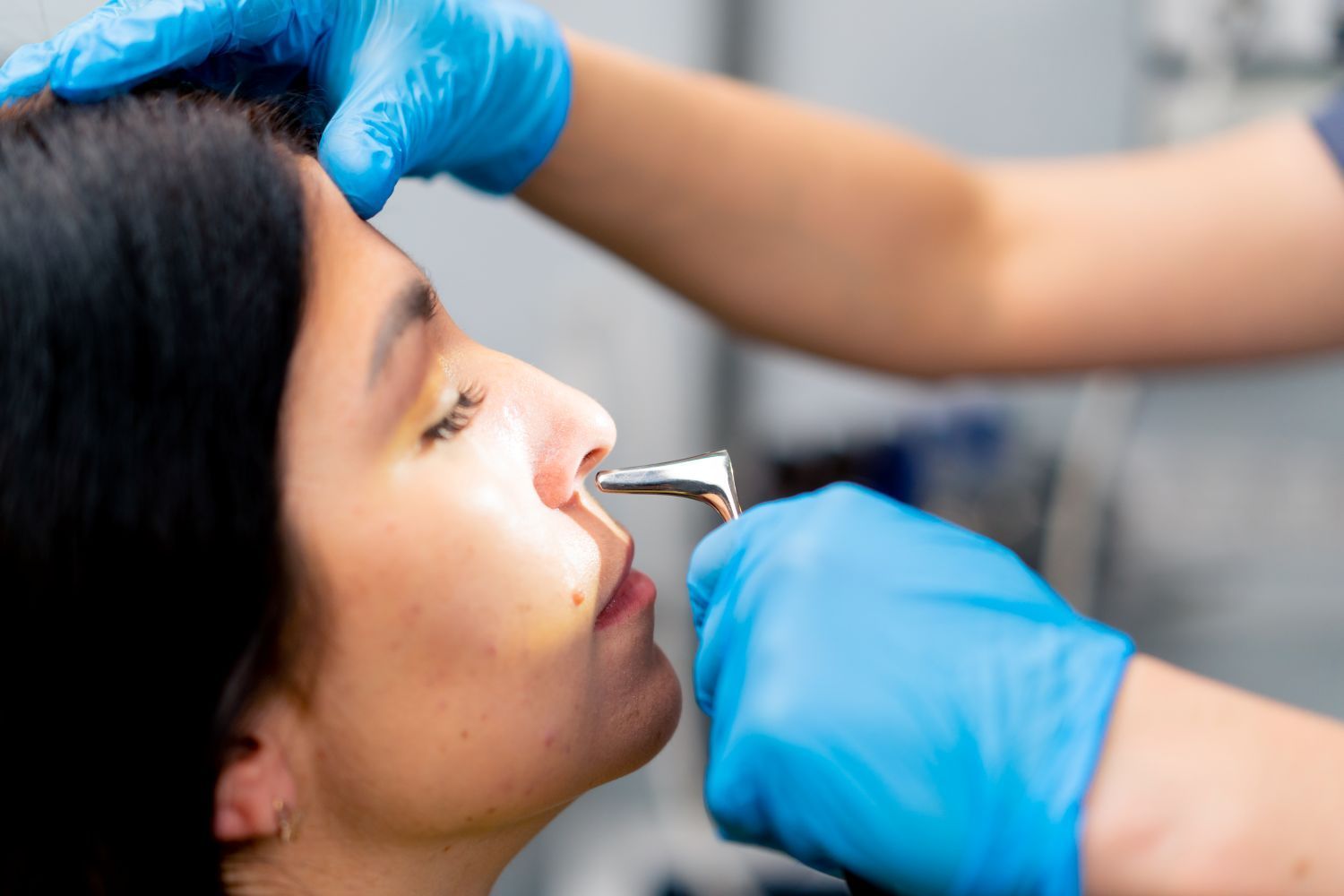How to Treat Nasal Congestion in Babies
Are you concerned about your baby's blocked nose? Nasal congestion in babies can be a frustrating and worrying experience for parents. Luckily, there are several natural remedies you can try to alleviate the discomfort of nasal congestion in babies. In this blog post, we'll cover the best ways to treat nasal congestion in babies.
Understanding Nasal Congestion in Babies
Nasal congestion in babies can be a common problem, and it's important to understand what causes the issue and the best ways to treat it. In most cases, nasal congestion is caused by an infection or allergies, and it can be uncomfortable for your baby. The most common way to treat nasal congestion in babies is through the use of saline sprays and drops, which can help to loosen mucus and make it easier to expel. A nasal syringe is also recommended for babies, as this will help pull out mucus and reduce congestion. You can also make a homemade saline solution, adding a quarter teaspoon of salt to a half-cup of lukewarm water. Warm baths may also help to open up your baby's airways and clear out any mucus or irritants that may be present. Cold medicines should be avoided as they are not recommended for small children. If your baby is very congested, you can try allowing them to cry for a few minutes as this can also help clear their airways.
Using Saline Sprays and Drops
Using saline sprays and drops is a safe and effective way to help clear nasal congestion in babies. Saline sprays and drops can be used daily to help clear mucus from the nose, making it easier to remove with an aspirator. To use saline drops, place two or three drops in one nostril while holding your baby upright or in a reclined position. For a nasal spray, hold your baby's head tilted forward and slightly to one side, then put only the tip of the bottle in the nostril and squeeze gently. It is important to rinse the tip of the bottle with warm tap water before each use to ensure it stays clean and free from bacteria. When using either saline spray or drops, be sure to follow the product instructions for the best results.
What Products Are Recommended?
It's important to know what products are recommended for treating nasal congestion in babies. Saline sprays and drops are safe and effective ways to help clear a baby's congestion, and they can be used for babies as young as 6 months old. This is a surprisingly simple solution, as it just involves squeezing one to two drops of saline nose drops in each nostril to help loosen any dried mucus, then using a rubber suction bulb to clear the nose. For those looking for an alternative, Vicks Vaporub may have provided relief to some adults, but it should not be used on babies as it could make matters worse. In addition, a nasal aspirator can be used to help draw out the mucus. Finally, warm baths and allowing your baby to cry can also help clear the congestion.
Using a Nasal Syringe
Using a nasal syringe is an effective way to treat nasal congestion in babies. It involves inserting a rubber tip into one nostril and squeezing the air out of the bulb to create a vacuum. This will help to draw out the mucus and make your baby cough, which can help to bring it up and out of their nose. When using a nasal syringe, it is important to tilt your baby’s head back before inserting it into their nostril. You may also want to use either saline spray or drops beforehand, as this can help loosen any mucus that may be present. If you decide to use cold medicine, make sure to check with your doctor first as these products are not recommended for babies. Finally, once your baby is done coughing and the mucus is removed, allow them some time to cry and blow their nose in order to clear out any remaining congestion.
Making a Homemade Saline Solution
Making a homemade saline solution is a great way to help clear nasal congestion in babies. It's easy to do with some basic items around the house. Start by adding about one cup of distilled or boiled tap water to a clean container. Then mix in about one teaspoon of iodide-free salt and one teaspoon of baking soda. Store this solution in an airtight container and refrigerate it for up to one month. For an even stronger solution, mix eight teaspoons of salt into one gallon of distilled water. Saline sprays and drops can also be used to help relieve congestion, but making your own with these simple ingredients can be an effective and economical alternative. Be sure to lay your baby down on their back and slightly tilt their head back when using the saline drops or spray, but don't force it. Warm baths may also help clear congestion and cold medicine isn't recommended for babies. Finally, allowing your baby to cry may also help relieve some of the built-up pressure from their nose.
Warm Baths to Help Clear Congestion
A warm bath can be a great way to help clear nasal congestion in babies. Just like a humidifier or a steamy bathroom can help your baby's congestion, giving your little one a warm bath can also make a big difference. Run a hot shower and sit in the bathroom with your little one for a few minutes. The steam will help your congested baby breathe better and make them more comfortable. You can also run a humidifier in your baby's room while they sleep to help loosen mucus. Cool mist is safest as there aren't any hot parts on the machine. Finally, for an extra boost, add some saline drops to the water to ease their breathing even further. With all of these tips combined, you should be able to find some relief from your little one's nasal congestion.
Why Cold Medicine Isn't Recommended
The American Academy of Pediatrics strongly recommends against using over-the-counter (OTC) cold and cough medicines for children under 4. This is because cold medicines can cause serious and potentially life-threatening side effects in young children. It's best to take a more holistic approach to treating nasal congestion in babies. Saline sprays or drops can help clear up nasal passages, thin the mucus, and shrink swollen tissues and they're safe for babies of all ages. A warm bath can also help your baby clear their nose, as well as make them more comfortable. And lastly, if your baby has a fever, you can give them fever-reducing medication (liquid acetaminophen or liquid ibuprofen). All of these treatments are safe for children under 4 and will go a long way toward helping them feel better.
Allow your Baby to Cry
It may seem counterintuitive, but sometimes allowing your baby to cry can help relieve their nasal congestion. When babies cry, they naturally take deep breaths which can help clear out the nasal passageways. This is why some experts recommend letting a baby cry it out if they are having difficulty breathing due to congestion. However, it’s important to remember that you should never force your baby to cry. If you feel that your baby is in distress or exhibiting any signs of illness, contact your healthcare provider immediately. After all the other home remedies such as using a saline spray or drops and a nasal aspirator have been tried, allowing your baby to cry may be the last resort for relieving their congestion.
Conclusion
In conclusion, nasal congestion in babies can be treated using several methods. Saline sprays and drops, as well as saline syringes, can help to reduce the amount of mucus in the nasal passages, allowing your baby to breathe more easily. A warm bath may also provide relief. It is important to note that cold medicine is not recommended for babies, as it is not effective and may cause harm. Finally, it's okay to let your baby cry sometimes in order to relieve their nasal congestion. By utilizing these methods, you can help your baby find relief from their nasal congestion.
Are you a parent looking for a pediatric sinus specialist? Or do you need help or have questions on pediatric nose and sinus issues, schedule a visit with us. Dr. Thomas Higgins has extensive experience with sinusitis and nasal polyposis in children.















